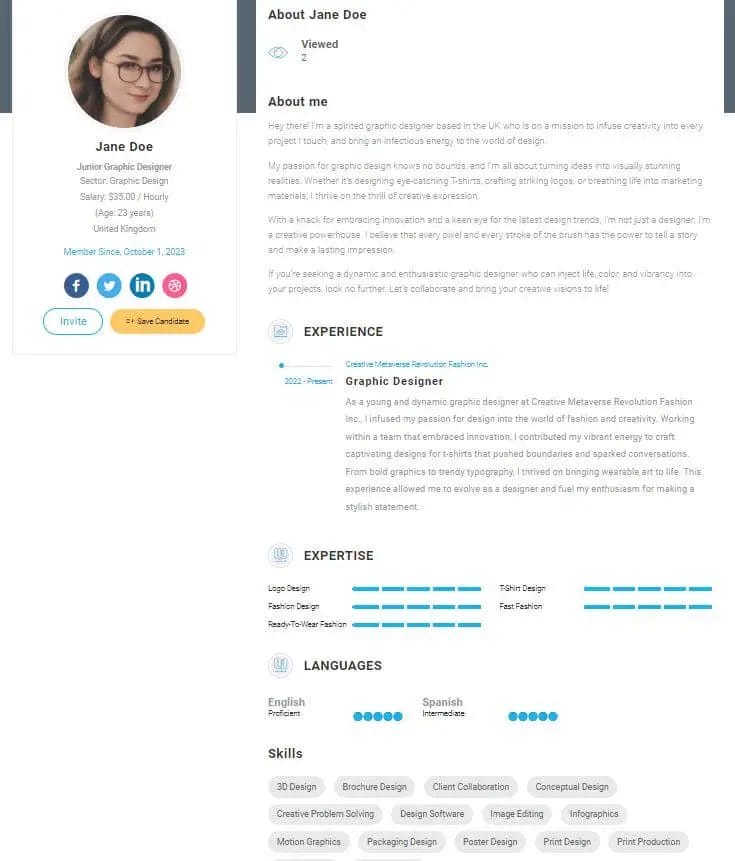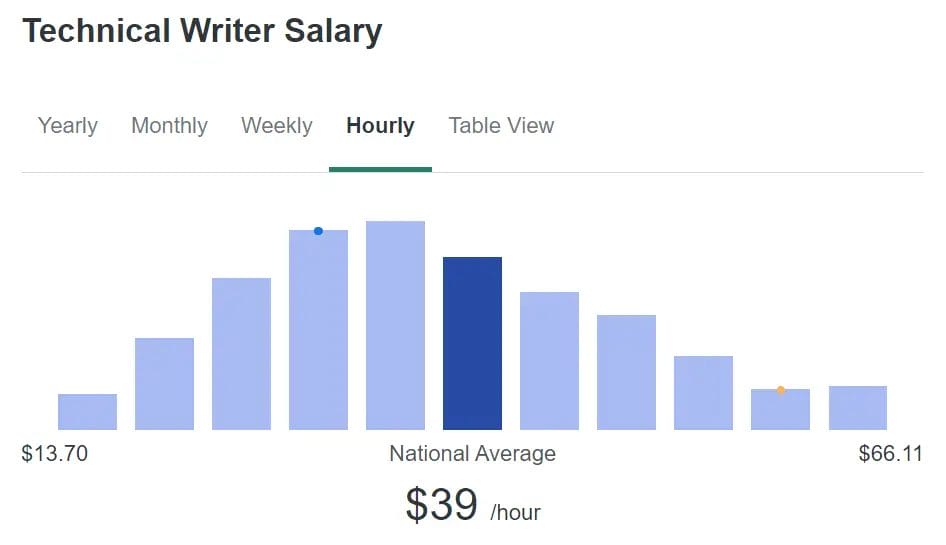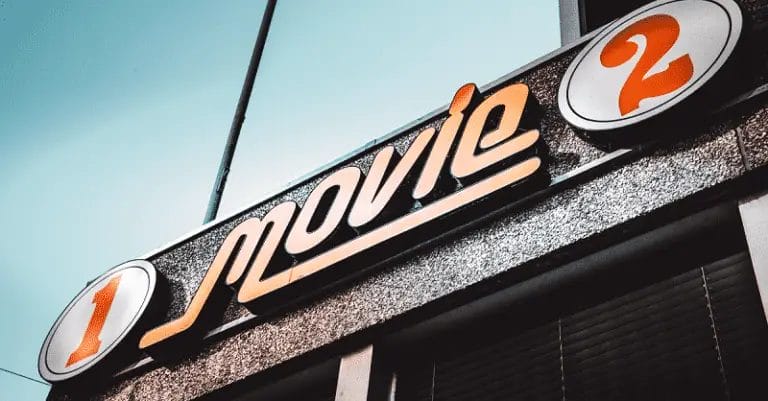|
Listen To Article
Getting your Trinity Audio player ready...
|
Starting a career in technical writing is exciting for those who have a passion for technology and a talent for breaking down complex information into easily digestible content.
A technical writer get paid an average of $39 per hour, and ranging from $13.70 to $66.11 per hour. This is way above the average hourly pay range of most remote jobs.
As the demand for technical communication rises, so too does the opportunity for remote freelance technical writers. If you’re drawn to this field and curious about how to kick-start your career path, you’re on the right track.
Embarking on this career begins with a commitment to education, honing relevant skills, and immersing oneself in technical literature.
By cultivating not only your writing capabilities but also your understanding of the field, you position yourself to be a competitive candidate in the freelance job market.
Getting hands-on experience, even through volunteer work or crafting an outstanding portfolio, can be decisive steps in your pursuit of becoming a technical writer.
Key Takeaways
- Education and skill development are foundational to becoming a technical writer.
- Practical experience and portfolio building are crucial for career growth.
- Persistence and strategic applications lead to success in the technical writing field.
Understanding Technical Writing
To excel as a remote freelance technical writer, you’ll need a strong grasp of how to transform complex technical concepts into clear and accessible text. Let’s explore the critical skills and expertise required.
Developing Core Skills
As an technical writer, there many specialized core skills you need to develop and nurture, and here are some key skillsets to consider:
- Technical Writing Skills: Your role hinges on your written content, especially your ability to explain technical subjects clearly.
- Communication Skills: You must be adept in clear communication, both written and verbal, as you’ll frequently interact with diverse teams.
- Research and Analyze: Research skills are crucial; being able to dig into a topic and understand it thoroughly will ensure the credibility of your work.
Remember, clarity is key, your writing must make complex ideas understandable to your audience.
Knowledge Areas and Expertise
As a technical writer, you are often considered a subject matter expert. To position yourself as such, focus on a niche catering to your strengths and interests.
Whether it’s software engineering, medical devices, or environmental technology, specialize where your passion lies.
With expertise, you can effectively break down technical content, ensuring the end-user grasps the material without ambiguity.
How to Become a Freelance Remote Technical Writer?

Becoming a technical writer don’t only means you know how to write, but have a profound knowledge in the industry, able to transform complex information into simple easy-to-understand concepts.
Furthermore, as a technical writer, you are the expert in the field and what you write is often trusted by millions of others, making it important that you are writing information which are accurate and reliable.
Here are some steps you may need to take to become a technical writer.
Step 1: Get Started by Investing in the Right Education

Building a strong educational foundation is essential for a career in technical writing. Your journey starts with obtaining the right mix of education and specialized training.
Get Professionally Certified
Professional certifications can enhance your credibility as a technical writer. Seek out courses that provide practical writing skills and familiarize you with industry standards. Certifications help you stay up-to-date with the latest tools and methodologies. These can also act as a testament to your commitment and expertise when presented to potential employers.
Get a Formal Education
A formal education in a technical field like computer science or engineering establishes you as a subject matter expert. This background is valuable when conveying complex ideas clearly and authoritatively. You could also focus on communication fields, but ensure you understand the technical aspects intimately since this will give you a competitive edge.
Get the Right Experience Needed
Experience is a powerful educator. Begin by involving yourself in projects that relate to your technical interests, even if they don’t pay at first. This hands-on practice allows you to refine your skills. Additionally, create a portfolio to showcase your work. Volunteer opportunities or internships can also provide meaningful experience while enhancing your professional profile.
Step 2: Develop the right set of skills

In this step, you’ll focus on acquiring the essential hard and soft skills that will set you apart in the field of technical writing.
Develop the Technical Skills Related to Your Industry
Technical writing demands a combination of industry-specific knowledge and technical proficiencies.
Every industry have its own set of unique technical skills you need to master. Mastering of these skills helps to prove you are an expert in the field which help to build confidence in the reader.
And the best way to get started is by by mastering the tools of the trade.
For example, if you are a software developer or website developer you can get started by learning about Microsoft Office, Asana, and various content management systems like WordPress. It’s also beneficial to understand web design basics and primary programming languages, including HTML, JavaScript, and CSS.
- Key Software Proficiencies:
- Microsoft Office (Word, Excel, PowerPoint)
- Content Management Systems (WordPress, Joomla)
- Work Management Tools (Asana, Trello)
- Programming Languages (Not mandatory, but helpful):
- HTML
- CSS
- JavaScript
Develop the Soft Skills as an Technical Writer
As a technical writer, you’ll need more than just technical skills. Effective communication, both written and verbal, is crucial for your daily tasks and collaborations.
Sharpen your critical thinking to dissect complex information.
Enhance your interpersonal skills to work well with diverse teams. Lastly, refine your project management abilities to handle deliverables efficiently.
- Communication: Clarity in writing and articulate speaking
- Critical Thinking: Analyzing complex info easily
- Interpersonal Skills: Team collaboration and feedback reception
- Management Skills: Organizing tasks and meeting deadlines
Step 3: Read Technical Content and Learn From Others

Enhancing your writing skills requires both reading and practicing. Begin by immersing yourself in various technical documents such as manuals, whitepapers, and business plans. This will familiarize you with the industry’s standards and terminologies. Make it a habit to study well-crafted documents; they serve as excellent learning tools.
- User Manuals: Understand how complex instructions are simplified.
- Whitepapers: Learn how to argue a point or describe a solution.
- Business Plans: Grasp the art of persuasive and strategic writing.
Interact with peers and professionals. Engage in forums or join a writing group. This is where you can seek feedback and learn from the experiences of others in the industry.
To further hone your craft, write regularly and gain feedback from experienced writers. This iterative process is key to growing as a remote freelance technical writer.
Pro Tip
- Read actively; analyze the language and structure of technical content.
- Apply what you learn to your writing.
- Engage with a community of technical writers.
Step 4: Start Writing and Learn as You Do Even if You Don’t Get Paid

The true mark of a technical writer’s growth often comes from practical experience. Begin creating and sharing content across different platforms to improve your skills, even if it doesn’t provide immediate financial rewards.
Offer Insights on Social Media
Crafting insightful posts on platforms such as LinkedIn or Twitter can showcase your knowledge in technical writing.
Use these channels to share tips, best practices, or summaries of complex technical concepts in a digestible format.
Each post serves as an opportunity to attract an audience and demonstrate your expertise.
Join The Discussion on Questions and Answer Platforms
Engage with communities on Q&A platforms like Quora or Stack Exchange.
Answering questions related to technical writing not only reinforces your understanding but also enhances your ability to explain intricate details clearly and concisely.
Your contributions can become a portfolio piece that reflects your problem-solving and communication skills.
Participate in an Industry Related Forum
Join and participate in forums dedicated to your technical field of interest.
- Providing valuable input in discussions gets your name recognized and allows you to build a reputation within the community.
- Offer helpful contributions which can lead to connections with potential mentors or employers looking for technical writers.
You’re not only refining your technical writing abilities but also building a network that can lead to paid opportunities.
Step 5: Get Hired as an Technical Writer

Landing your first role is crucial. Build a strong resume, tailor it to each gig, and highlight your freelance readiness.
Apply for an Internship
Internships offer hands-on experience and are a stepping stone to becoming an independent writer.
Look for internships that allow remote work and align with your technical interests. When applying, showcase any relevant coursework or projects.
Apply for an independent freelance technical writing project
As a freelancer, you’ll tackle diverse gigs. Start by creating profiles on platforms dedicated to freelance work.
In your applications, feature your most impactful work and clearly detail your expertise and experience.
Apply for a technical writing job with a company
Many companies seek technical writers for long-term projects. Your resume is your first impression, so include a portfolio showcasing your writing samples.
Remember, your ability to work remotely should be emphasized as a testament to your independence and self-motivation.
Building Your Freelance Foundation as A Technical Writer

The journey to becoming a remote freelance technical writer involves laying a strong foundation. This includes creating a persuasive portfolio, establishing a professional network, and learning how to secure clients and projects.
Creating an Impressive Portfolio
Your portfolio showcases your skills and expertise.
To create an impressive portfolio you need to ensure your portfolio is easily accessible and well-organized, presenting a range of work that highlights your versatility and depth of knowledge in technical writing.
- Start by choosing your best work, which may include user manuals, white papers, or business documentation that you’ve created or worked on.
- Display these pieces on platforms like LinkedIn or your personal website.
- Update and improve as you gain more experience or as your portfolio expands.
Establishing Your Professional Network
Networking is essential. Connect with other professionals using social media and professional sites like LinkedIn.
Attend webinars or join forums that focus on technical writing and your areas of expertise. Building relationships can lead to referrals or direct job opportunities.
Your network can provide support, advice, and insight into new trends and technologies that can enhance your career.
Understand How to Find Clients and Jobs
Finding clients requires knowledge of where to look.
- Explore job boards like Upwork, HQHIRE and FlexJobs that list freelance opportunities.
- Customize your proposals to the needs of each client and highlight your experience relevant to the project.
Communicate your value proposition clearly, showing potential clients why your skills and expertise make you the ideal choice for their technical writing needs.
Get your 100% Free online resume and get noticed by potential employers. Start out of the crowded space of millions of remote job seekers and find the remote job that you will enjoy and love.

Join over 11,000+ achievers who are committed to achieving their career goals!







